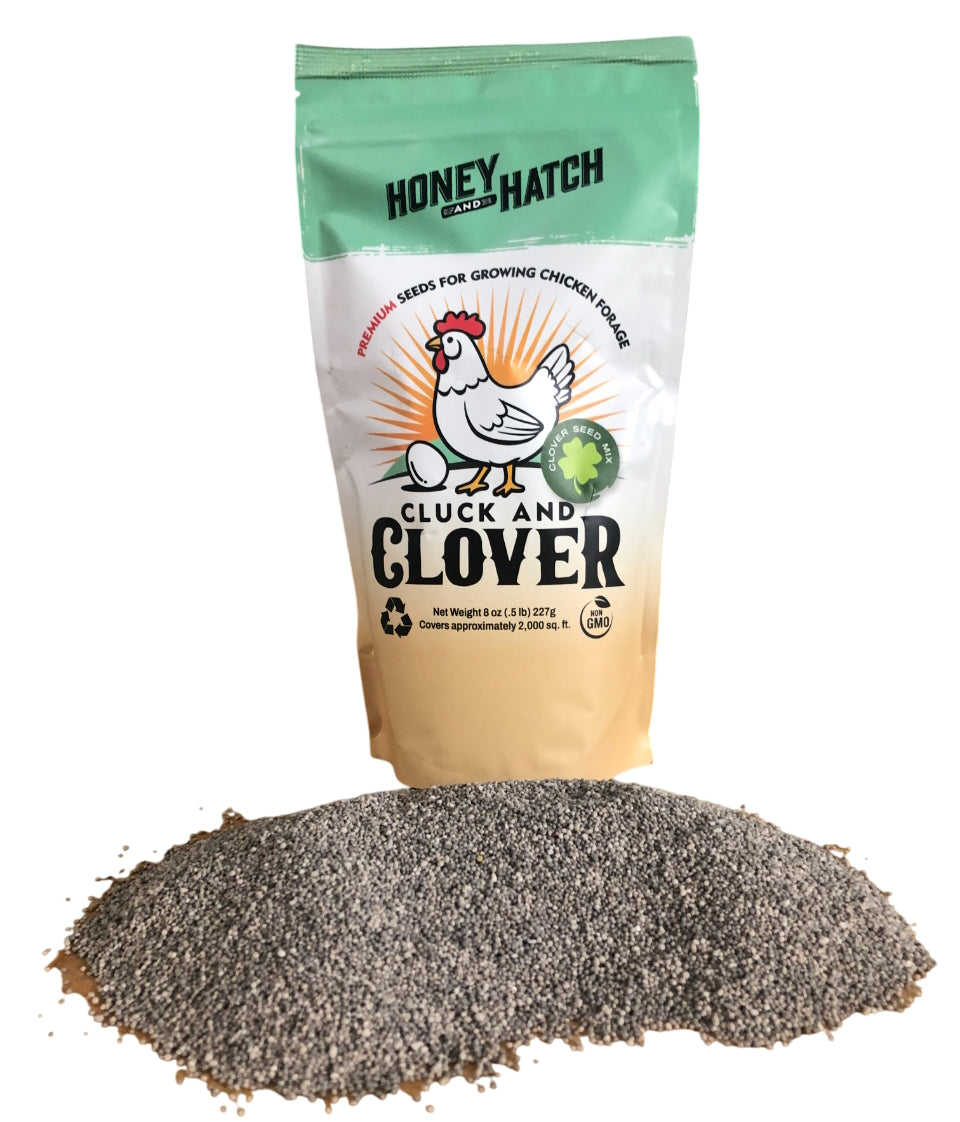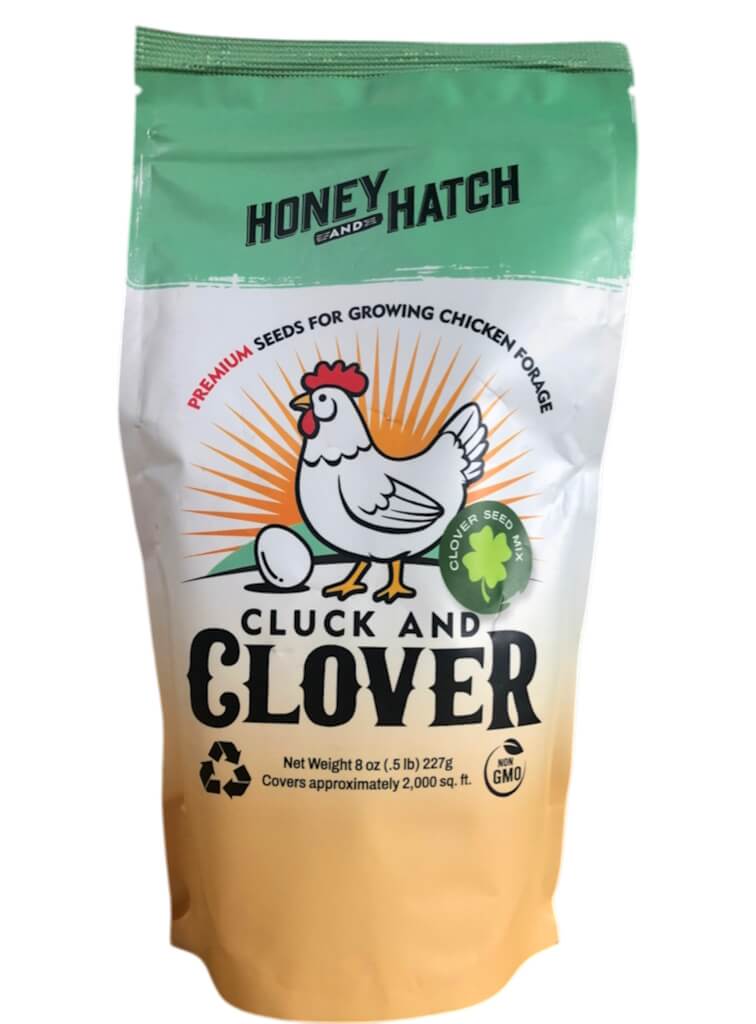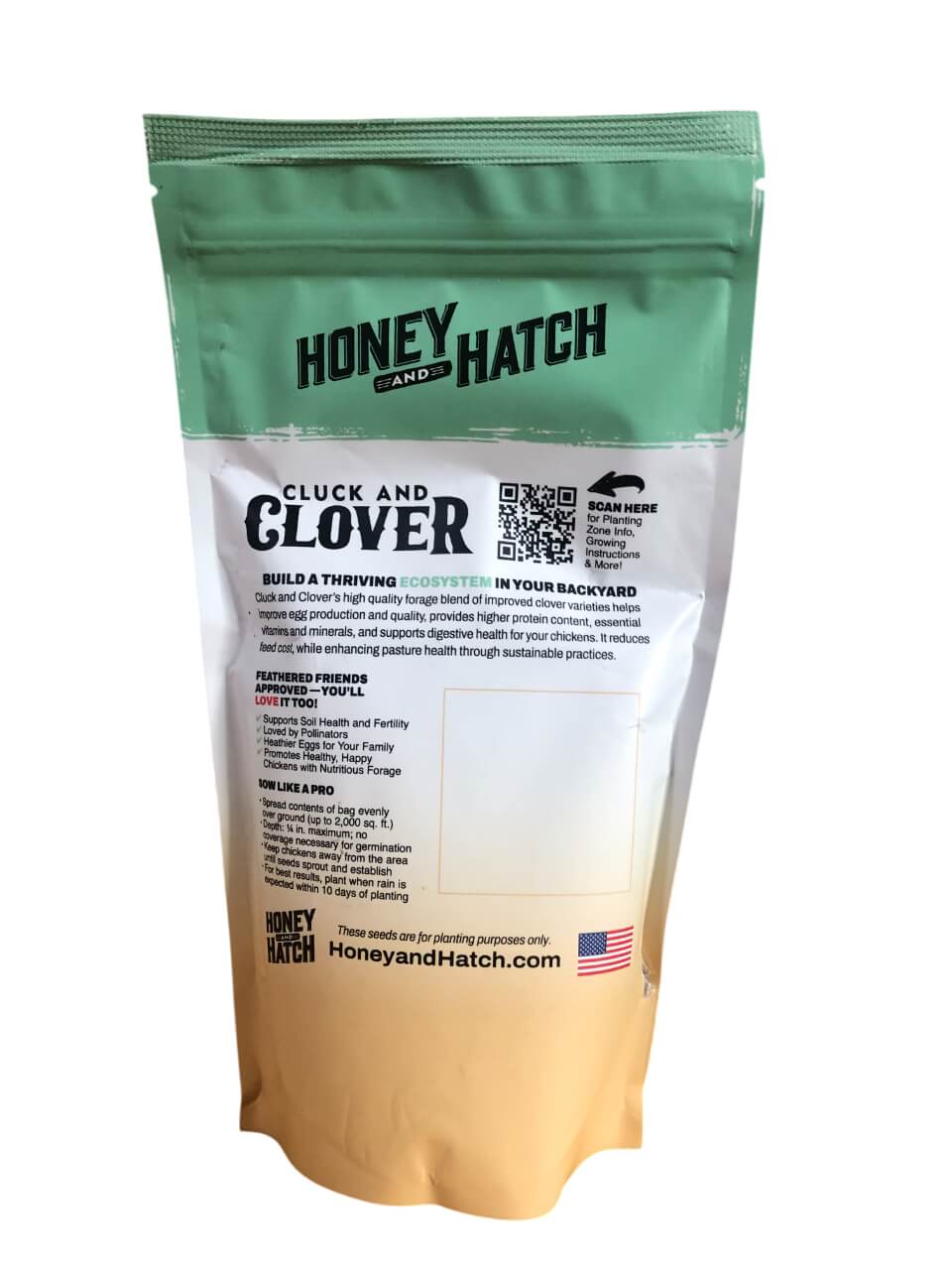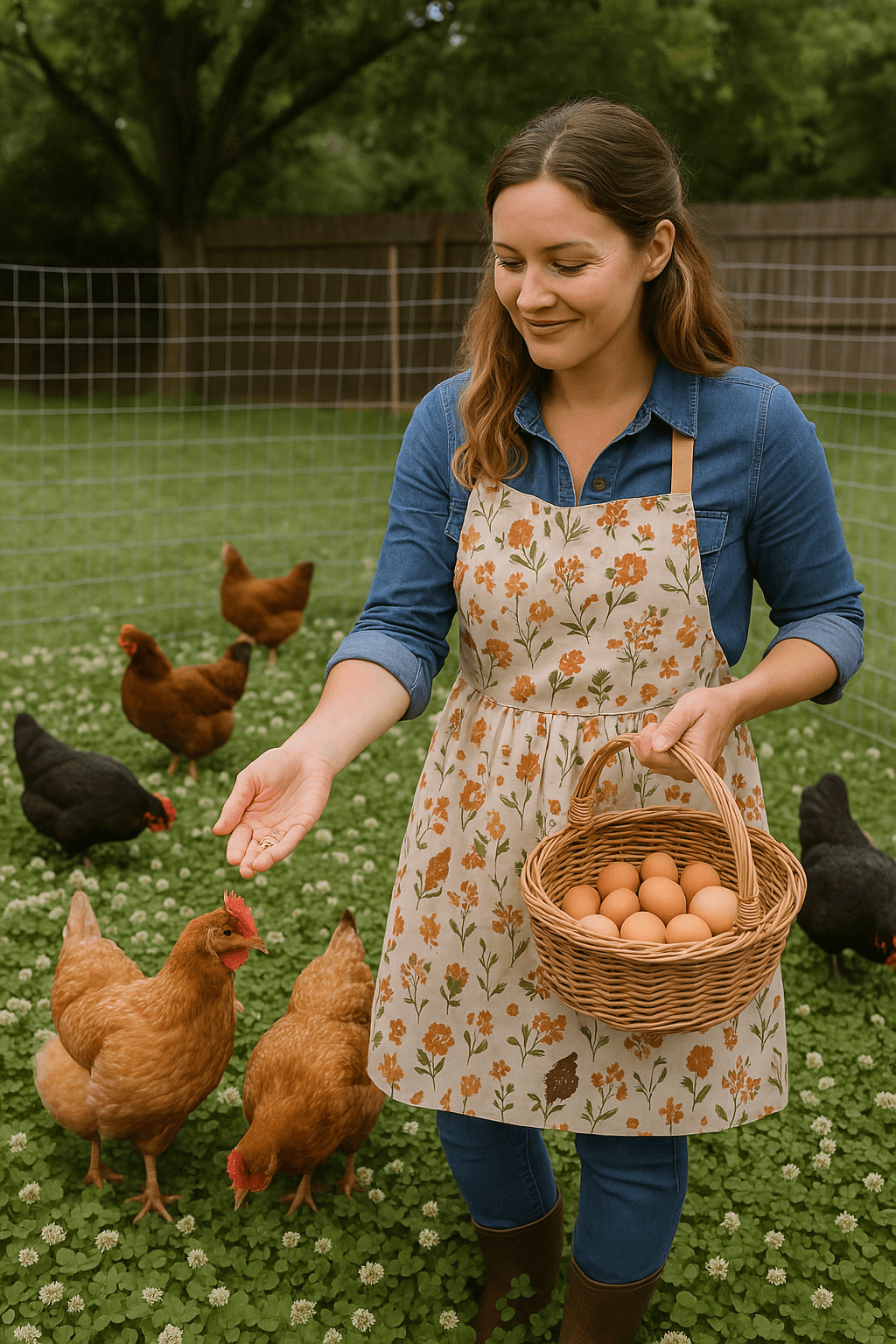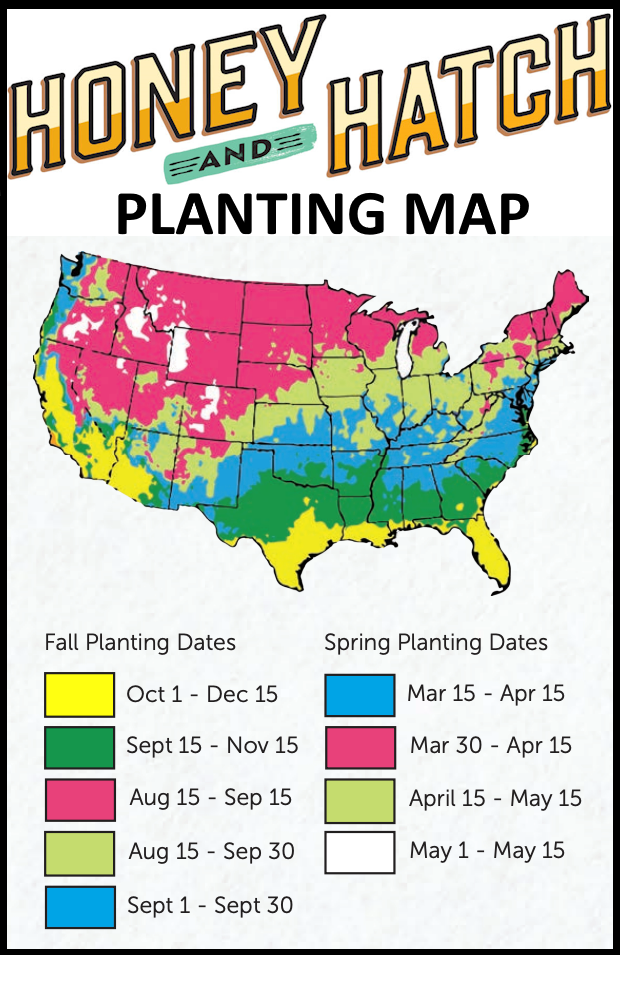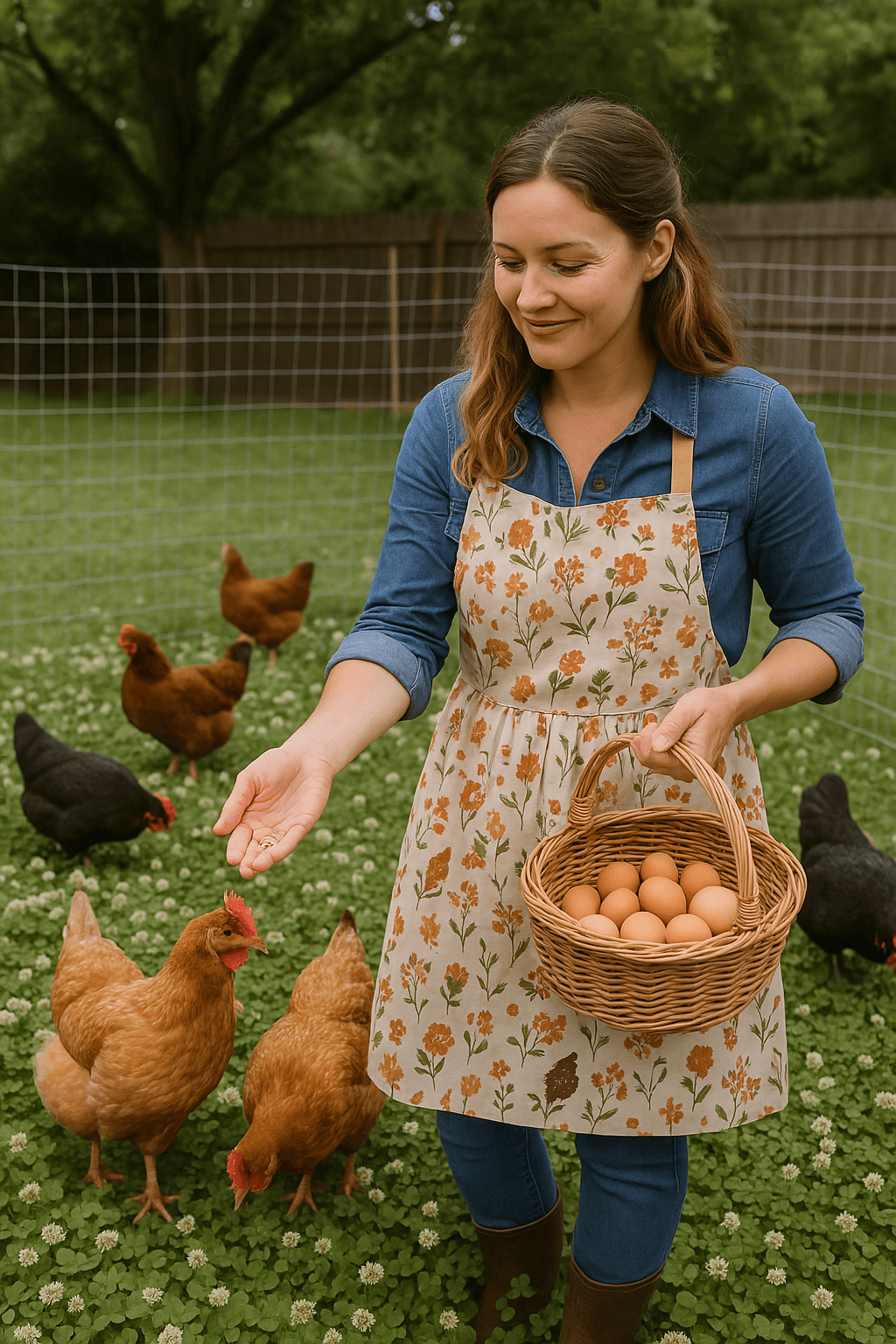
Why Chickens Foraging on Clover Makes Financial and Health Sense: Real Data, Real Benefits
Share
- By Tiffany Jenkins, Founder of Honey & Hatch
Raising chickens on pasture with clover isn’t just a romantic idea — it’s a proven practice backed by science that benefits your birds, your wallet, and your land. Here’s what the data says about the value of letting chickens forage on clover-rich pastures. Backyard chickens and free-range chickens love clover!
Financial Sense … How Clover Forage Saves on Feed for Chickens
Chickens on good pasture can replace up to 20% of their daily feed intake with forage, including clovers.
According to the National Center for Appropriate Technology (NCAT)’s National Sustainable Agriculture Information Services (NCAT / ATTR)’s data on Pastured Poultry Nutrition and Forages, laying hens typically consume 10-20% of their dry matter intake from forage when given access to a high-quality, legume-heavy pasture.
This contribution is meaningful — especially when paired with insects, seeds, and other pasture foods.
What are the Cost Savings?
That 10–20% forage contribution equals measurable savings:
- Feed accounts for 60–70% of the cost of raising poultry (source: USDA & ATTRA).
- ATTRA and Penn State Extension report that pastured hens consume 10–20% less purchased feed.
Consumption Healthy Sense … Better Eggs and Meat Quality
In addition to these cost savings of using clover forage, several studies have shown that birds foraging on clover and other legumes produce higher-quality eggs and meat:
- Yolk color becomes more vibrant due to the carotenoids in fresh greens.
- Eggs from pastured birds have 2–4 times more omega 3 fatty acids compared to caged birds.
- Meat can have a firmer texture and improved flavor.
These benefits matter — “pasture-raised” eggs often sell for 2x to 3x the price of standard eggs. However, the most important thing to know is that you will be feeding your flock and your family healthier.
Bird Healthy and Welfare Sense
Chickens allowed to forage on clover-rich pastures tend to be healthier and exhibit more natural behaviors:
- Improved leg health due to stronger muscles and lower impact on hard floors.
- Less feather pecking and aggression because birds are occupied and stimulated by foraging.
- Exposure to a variety of plants and insects supports immune health.
Why Clover Works So Well
Clover stands out as a pasture plant for several reasons:
- High Protein Content: Clovers provide more protein than grasses — critical for layers and growing birds.
Palatability: Chickens prefer clovers and legumes over many grasses because they’re tender and flavorful.
- Nitrogen Fixation: Clover enriches the soil, reducing the need for synthetic fertilizers.
- Soil Protection: Dense clover cover reduces erosion and improves soil structure.
In short: clover feeds the chickens, and the chickens fertilize and aerate the soil — a mutually beneficial system.
The Numbers At a Glance
| Benefit | Data |
|
|
|
|
|
|
|
|
How to Get Started
Seed a clover-rich pasture with white clover. You can always mix in grass for additional foraging as well.
Use rotational grazing. Move birds regularly to allow regrowth and prevent overgrazing.
Monitor forage availability. Pastures should stay lush enough to provide meaningful forage without overgrazing.
It’s ok to supplement with a balanced ration of feed in addition to clover. The important thing to remember is that foraging clover cuts cost, improves flock health and provides you with better eggs!
Foraging chickens on clover is a proven way to reduce feed costs, improve animal welfare, enhance product quality, and build soil health.
By seeding clover pastures and managing them wisely, you can help your flock, your farm, and your bottom line, all while producing healthier eggs and meat for your family or customers.


